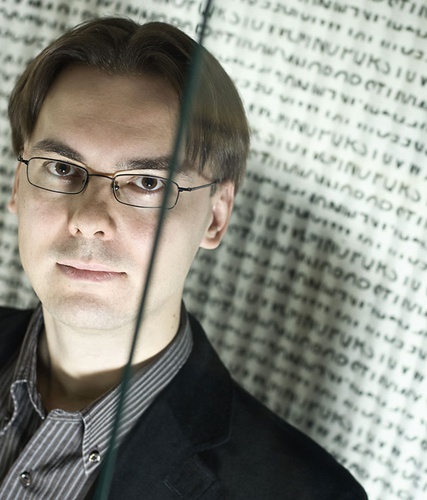IDEA
L’idée derrière IDEA - Les enjeux artistiques
Comme son titre le suggère, ainsi que les intitulés des trois mouvements qui la composent, IDEA s’inspire du processus de la pensée, c’est-à-dire la manière dont « naît » une idée – sans toutefois être une musique à programme.
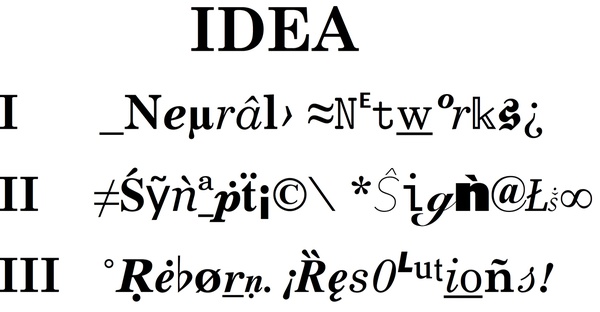
La première partie, Neural Networks, fait référence au concept de « réseau de neurones », que l’on associe généralement à une pensée, biologique ou artificielle, à l’instar des cerveaux humains/animaux ou des machines d’intelligence artificielle. Dans le cas d’un réseau de neurones biologique, par exemple, les « signaux synaptiques » qu’évoque le second mouvement (Synaptic Signals) sont de nature chimique et électrique.
Ainsi le compositeur Sampo Haapamäki espère-t-il que, catalysé par « l’alchimie entre l’ensemble et l’électronique baignant le cerveau de l’auditeur, le processus d’écoute d’IDEA sera être en mesure d’éveiller au moins un phénomène qui s’approche de l’activité cérébrale (émotionnelle et/ou rationnelle), comme des “résolutions renaissantes” (les Reborn Resolutions du troisième et dernier mouvement). »
Suivez le chef ! - Les enjeux technologiques
À l’occasion d’une visite du Musée de la musique de Vienne au printemps 2017, Sampo Haapamäki découvre l’installation Virtual Conductor : un simulateur de direction d’orchestre. Cette installation propose effectivement au visiteur de prendre lui-même la baguette pour diriger, au tempo de son choix, un Philharmonique de Vienne virtuel projeté sur un écran – dans un répertoire composé essentiellement de grandes pages classiques comme Le beau Danube bleu de Johann Strauss. Pour le compositeur, cette expérience muséale vient surtout confirmer la pertinence du recours à la captation de geste d’un chef d’orchestre pour faire varier la durée des temps (par exemple en changeant le tempo ou les chiffrages de mesure) – y compris dans un contexte de concert – et pour déclencher fichiers sons et événements de traitements en temps réel d’une pièce mixte.
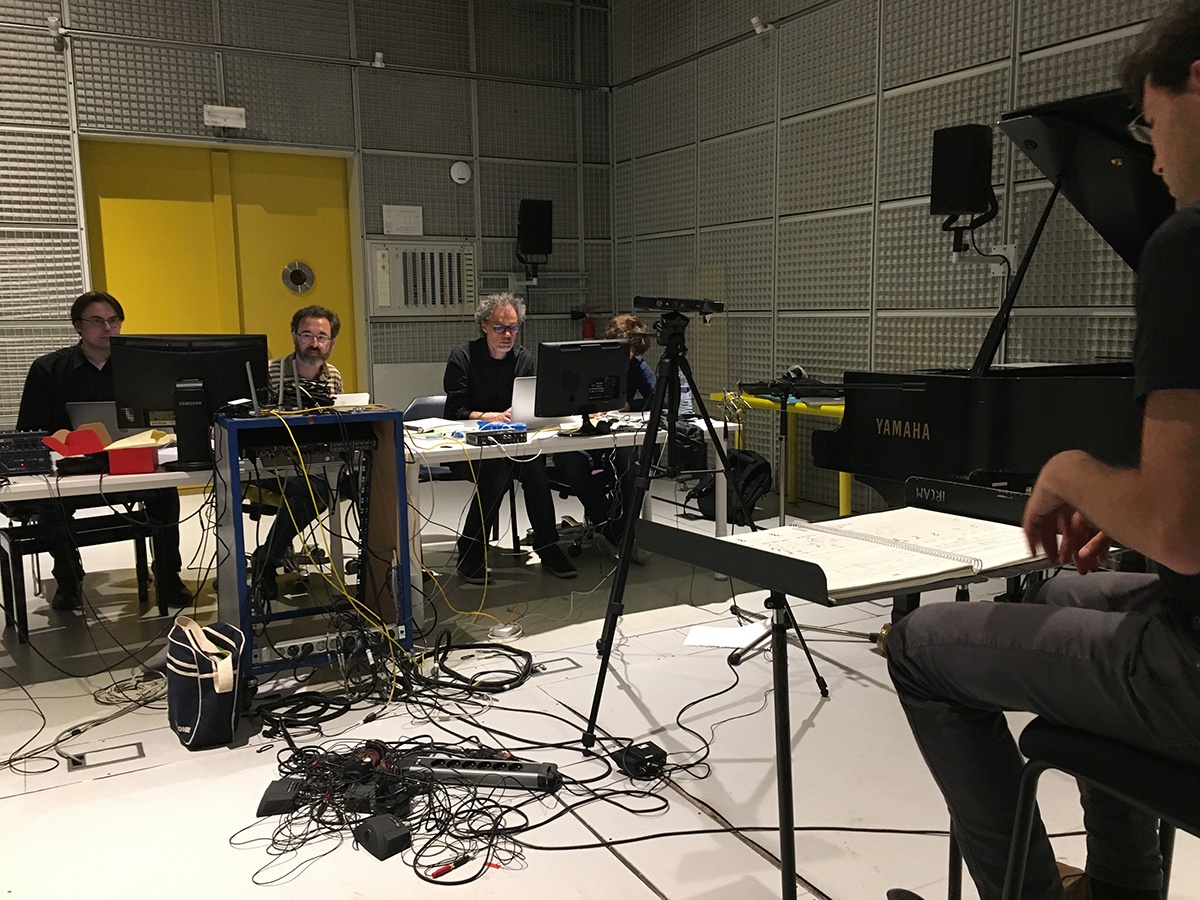
Sampo Haapamäki, Serge Lemouton, Frédéric Bevilacqua en studio à l'Ircam © Déborah Lopatin
À l’Ircam, Sampo Haapamäki et le réalisateur en informatique musicale qui l’accompagne, Serge Lemouton, se rapprochent donc tout naturellement de l’équipe ISMM (Interaction Son Musique Mouvement) qui développe des capteurs de mouvements depuis plus de quinze ans. Serge Lemouton collabore notamment avec Frédéric Bevilacqua qui, à la tête de l’équipe, développe depuis 2005 Gesture Follower, un logiciel de suivi et d’analyse de gestes, plus tard implémenté dans la boîte à outils Mubu de Max par Riccardi Borghesi, Diemo Schwarz et Norbert Schnell. Concernant le capteur en lui-même, ce sera le capteur R-IoT, développé par Emmanuel Fléty. Notons au passage que Serge Lemouton avait déjà travaillé avec ces technologies de capture de gestes à de nombreuses reprises sur des projets antérieurs, mais IDEA sera pour lui la première expérience s’agissant de suivre la gestique d’un chef d’orchestre.
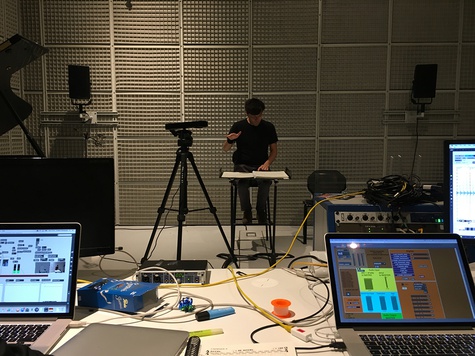
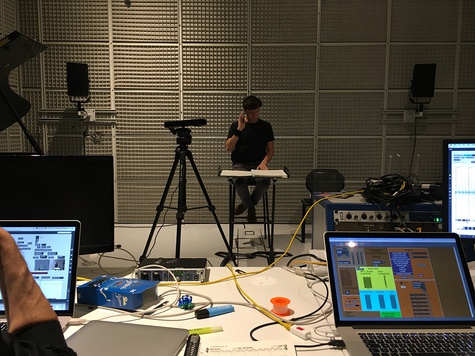
Christian Karlsen en studio à l'Ircam © Déborah Lopatin
Dès janvier 2018, les premiers tests commencent à l’Ircam : Serge Lemouton enregistre les données de suivi de gestes de trois étudiants en direction d’orchestre du Conservatoire national supérieur de musique et de danse de Paris, sans orchestre toutefois. Un peu plus tard, rebelote, cette fois dans les locaux du Conservatoire, en compagnie du compositeur, et avec orchestre – pour affiner l’analyse de la gestique in situ.
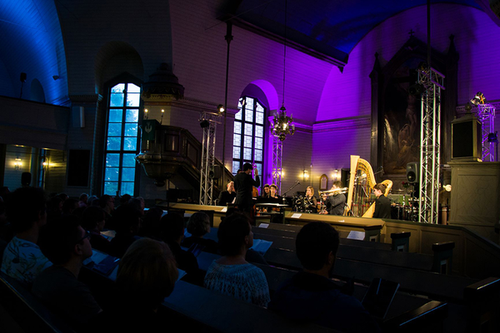 En mai et juin 2018, c’est au tour de Christian Karlsen. Christian Karlsen est le chef qui doit diriger la création de l’œuvre le 5 juillet 2018 à l’église de Viitasaari dans le cadre du Time of Music Festival, à la tête d’ICE (International Contemporary Ensemble). Karlsen passe quatre jours dans les sous-sols de l’Ircam, avec un capteur R-IoT fixé sur sa main droite pour suivre le moindre de ses gestes. Au terme de cette intense session de travail, Karlsen dirige la partition dans son entier, en studio et sans ensemble, pour enregistrer toutes les données de ses mouvements sur la durée de l’œuvre. Ces données seront notamment utilisées au cours de la performance. Utilisées comme référence, leur comparaison aux données collectées en temps réel permet à l’ordinateur de se situer dans la partition à tout instant – également avec l’aide du logiciel Antescofo, développé par l’équipe RepMus (Représentations Musicales) de l’Ircam-STMS. En effet, dit Sampo Haapamäki :
En mai et juin 2018, c’est au tour de Christian Karlsen. Christian Karlsen est le chef qui doit diriger la création de l’œuvre le 5 juillet 2018 à l’église de Viitasaari dans le cadre du Time of Music Festival, à la tête d’ICE (International Contemporary Ensemble). Karlsen passe quatre jours dans les sous-sols de l’Ircam, avec un capteur R-IoT fixé sur sa main droite pour suivre le moindre de ses gestes. Au terme de cette intense session de travail, Karlsen dirige la partition dans son entier, en studio et sans ensemble, pour enregistrer toutes les données de ses mouvements sur la durée de l’œuvre. Ces données seront notamment utilisées au cours de la performance. Utilisées comme référence, leur comparaison aux données collectées en temps réel permet à l’ordinateur de se situer dans la partition à tout instant – également avec l’aide du logiciel Antescofo, développé par l’équipe RepMus (Représentations Musicales) de l’Ircam-STMS. En effet, dit Sampo Haapamäki :
« les durées des temps varient considérablement dans IDEA et la composition a recours à un large éventail de chiffrages de mesure, voire parfois à des mesures micro et additives, ainsi qu’à des accélérations et décélérations temporelles. » Se situer dans le flux musical est donc d’autant plus crucial pour la fluidité de la performance.
Photo : Christian Karlsen dirigeant l'ensemble ICE lors de la création mondiale IDEA © Time of Music
Précédents projets à l'Ircam
Logo (2013) pour violon et électronique sur 9 canaux (réalisée dans le cadre du Cursus 1 sous la tutelle de Grégoire Lorieux), 6 minutes.
IDEA (2018) pour ensemble de 11 musiciens et électronique diffusée sur 8 canaux, commande du festival Time of Music et de l’Ircam, en partie financée par le réseau ULYSSES de la Commission européenne (Creative europe), avec le réalisateur en informatique musicale Serge Lemouton, 27 minutes.
Biographie
Sampo Haapamäki
Compositeur (né en 1979)
Sampo Haapamäki étudie la composition à l’Académie Sibelius d’Helsinki avec Tapio Nevanlinna et Veli-Matti Puumala, jusqu’à son Master en 2005. Il complète sa format…




